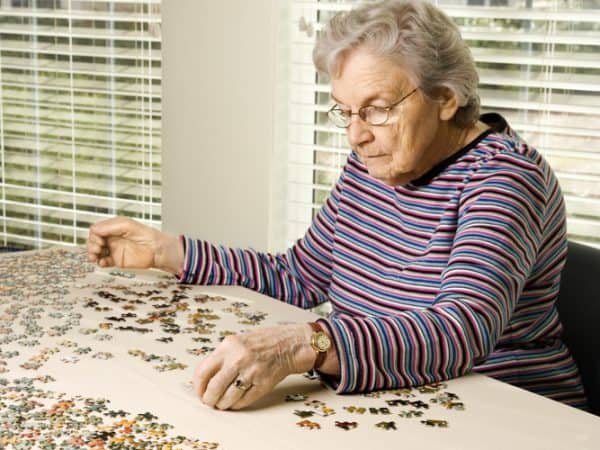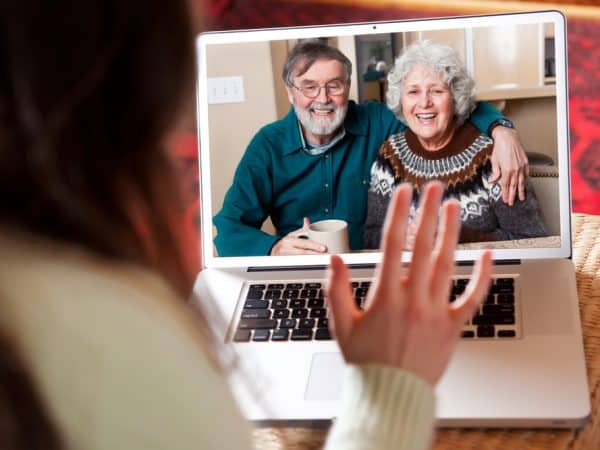
But once he suffered a serious health crisis that landed him in the hospital and in rehab for months, Rotondo and her two siblings realized that their parents could no longer take care of themselves.
“Life changed instantly for them, and we had to adapt quickly,” Rotondo says. “It would have been better if we’d slowly had to get them accustomed to help.”

Using advocates can ease the burden
Rotondo began by contacting a senior center in her parents’ Boston suburb, seeking referrals to services in the community. From those, she did interviews, checked references and chose an agency to provide home health care aides. She engaged a geriatric care manager from another agency to oversee medical issues and make spot visits.
“If you’re worried about mom or dad, you need to get someone in the balance who can give you some objective feedback,” says Emily Saltz, CEO of LifeCare Advocates, a geriatric care agency in Massachusetts. “That burden is emotionally more difficult when kids live at a distance.”
In addition to arranging her parents’ care, Rotondo took over running their household, from paying bills to having groceries delivered to coordinating medical care. That required her to get access to bank accounts and medical information, not available to children without their parents’ consent.
“Once you’re able to be on bank accounts and once you’re able to talk to doctors, a lot of things fall into place,” Rotondo says.
The geriatric care manager, who was a nurse, took her father to doctor’s appointments and helped manage his complex medical needs. Her mother’s medical needs were simpler, and she could often just be accompanied by an aide who tape-recorded the appointment so Rotondo could listen later.

The aid of technology
For Cruz, setting up a computer or other forms of technology to help stay in contact with his parents was not an option. “The struggle there is that my parents are not tech-savvy — no smartphones, computers or laptops. They don’t order anything online, so it’s a challenge. Everything has to be done physically. Getting the devices and showing them how everything works online would have simply been too cumbersome and frustrating for all involved.”
But when possible, technology can provide some help when coordinating long-distance care. For some, medical alert buttons and motion detectors can ease the concern.
Geoff Gross is the CEO of Medical Guardian, which has expanded its services beyond medical alerts to a Family Guardian system that allows family members to monitor parents’ activities via motion sensors and apps. The company continues to develop tools that will help older people stay home longer.
“My goal is to give our caregivers more visibility and insight into the activity in the home,” Gross says. “It’s a very basic start of what I think is going to be a more involved process. … A lot of it comes down to peace of mind: knowing that they’re up, that they’re eating, etc.”
Unlike Cruz, Rotondo was able to mount a small computer in her parents’ home, where she could broadcast daily messages, post family photos and show the date, schedule and name of that day’s caregiver for her forgetful mother. 
Here are eight tips for taking care of aging parents when you don’t live close to them.
Organize legal and financial issues. This is best discussed long before your parents need help. You should request access to bank accounts and health information, plus health care surrogate and end-of-life documents, trusts, wills and other documents may be needed. “It’s uncomfortable to have these discussions with parents,” Rotondo says. But it is even more important for family members of all ages to discuss how to handle things if anyone should contract the virus or other health problem.
Automate what you can. When you take over handling a parent’s affairs, you’re essentially managing a second household. Cruz continued overseeing bill-paying and other tasks after he moved in with his parents, but reduced his own needs during the crisis. You may need to set up online or automatic bill-paying services, auto-renewal of newspaper subscriptions, automatic prescription refills, grocery delivery – whatever is needed to keep the home running from day to day. This is a good time to take a look at all the subscriptions that are on automatic payment – call and cancel any subscriptions that are no longer necessary.
Find the help you need. Start with senior centers, your parents’ friends and neighbors and agencies in the community. One you get referrals, interview the managers of the companies you’re considering and then check references. You can hire caregivers directly, but that means it’s up to you to provide a replacement if someone calls in sick. “We lucked out and, in fact, the caregivers became friends with my parents,” Rotondo says.
Consider a geriatric care manager. If you don’t know your parents’ town, a geriatric care manager can help you find the health services you need and assist with managing medical care. Unlike online referral services, geriatric care managers don’t receive referral fees from the providers they recommend. You can find managers in your town through the Aging Life Care Association.
Use technology in a smart way. Rotondo set up a computer in the home so the caregivers could put their logs online rather than on paper, and she could read them immediately. But motion sensors alone are unlikely to give you all the information you need to help aging parents who may not be forthcoming about all their problems. “I think these all have a role to play, but I think it’s important to long-distance caregivers not to fall into a trap of thinking this is a solution,” Saltz says. For Cruz, he found the most reasonable solution was to become a part of their daily lives and manage the tasks that were difficult for them.
“It seems easy to suggest doing everything online — Facetime, ordering groceries online, etc.,” says Cruz. “This is just not possible for many elderly people because it’s too complicated and often too expensive — both in getting all the necessary devices (and learning how to use them) and all the extra delivery/service fees. There is a whole generation of elderly parents, like mine, that fall into a technology gap. Plus, my parents have a frugal mentality and would never think of spending hundreds of dollars for a device or paying for the necessary monthly fees. And they’re definitely not going to pay $10 to have someone deliver their groceries or dinner. Someone has to [be willing to] pick up the extra expense.”
If a computer is an option for you and your parents, ask your parents’ doctors if they will set up tele-health appointments with you and allow you to attend the session.
Offer new ways to spend the time. Cruz says his parents became very anxious, so he helped them fill the time with easy hobbies. “I bought my Mom colored pencils and coloring books and my Father is obsessed with Highlights For Children’s Hidden Picture books. It’s given them something to do rather than watching the news all day. My father is basically bed-ridden. On the other hand, my mother is a little more mobile, so we can sit outside. We just started gardening — planting flowers and a few vegetables.” 
Visit as often as you can. During the pandemic, you must refrain from visiting. But even if your parents are having all their needs met by others, they still want to see you. Plus, seeing your parents gives you a more accurate sense of how well your plan is working and what else they might need. Children who live closer but aren’t skilled at caregiving or organizing can provide great joy by visiting and bringing the grandchildren. Parents’ friends, other family, clergy and your old friends who live in town can also drop by. Make sure all visitors schedule these visits in advance, and observe the social distancing guidelines until the current crisis has passed. Be creative with visits!
Agree among siblings who will do what. A geriatric care manager can often help mediate disputes among siblings as well as provide a more accurate picture of caregiving. What you don’t want is for one sibling to set up a system only to have a second sibling sweep in and change it. Agree among yourselves who will take which responsibilities.
Let caregivers know what’s expected. Be explicit with caregivers about when and how you want to be contacted. If the toilet overflows, do you want them to call you or a plumber? Can they help your parents order takeout or do you want them to cook? Is there a specific menu plan, or is it up to them? Leave lists of providers, family members and others to call for specific issues.

